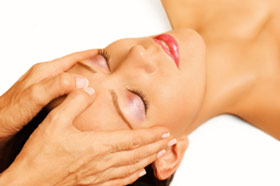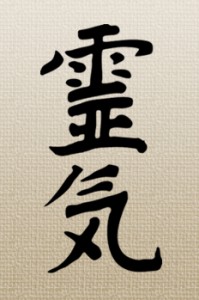- Home
- About Us
- Clinical Psychology
- Stress Resilience
- Sports Resilience
- Holistic Therapies
- Testimonials
- Contact
- Associates
Reiki Healing Treatments
Discover the Power of Reiki
 The lifestyles we lead can be hectic. We often have little or no time for ourselves and we neglect our body and its systems. This leads to imbalance and stress. How we deal with our stress determines whether it has a good or bad effect on our well-being. Long-term stress can wreak havoc on our health as harmful stress related hormones linger in our bodies. This can manifest in stress related symptoms, disease and unhappiness. Whilst traditional medicine has made incredible contributions to increased quality of life by treating symptoms of illness, people want more. Alongside the value of Western medicine, a more informed public now want greater control of their own health and are seeking alternative healing methods to both prevent and cure illness completely. This new awareness and desire has led to a surge in the use of Reiki healing for distress on all levels.
The lifestyles we lead can be hectic. We often have little or no time for ourselves and we neglect our body and its systems. This leads to imbalance and stress. How we deal with our stress determines whether it has a good or bad effect on our well-being. Long-term stress can wreak havoc on our health as harmful stress related hormones linger in our bodies. This can manifest in stress related symptoms, disease and unhappiness. Whilst traditional medicine has made incredible contributions to increased quality of life by treating symptoms of illness, people want more. Alongside the value of Western medicine, a more informed public now want greater control of their own health and are seeking alternative healing methods to both prevent and cure illness completely. This new awareness and desire has led to a surge in the use of Reiki healing for distress on all levels.
What is Reiki?
 Reiki is an ancient healing art. Many believe it to be the strongest form of energy healing that has ever existed. It is a complete healing system, working with your energy to bring balance, inner harmony and heal your physical body as well as your mental, emotional and spiritual well-being.
Reiki is an ancient healing art. Many believe it to be the strongest form of energy healing that has ever existed. It is a complete healing system, working with your energy to bring balance, inner harmony and heal your physical body as well as your mental, emotional and spiritual well-being.
Reiki is a Japanese word; REI means “Universal” and KI means “Life Force Energy”. (It is pronounced “Ray-Key”). It is the vital life force energy that flows through all living things. When the flow of this Life Force energy through our physical bodies is blocked or disrupted, physical / emotional health problems tend to occur.
Reiki is not a religion and will work regardless of your belief system.
Evidence of the effectiveness of Reiki
There is increasing evidence from a growing number of reputable scientific studies that Reiki is therapeutic. For example, research has demonstrated the beneficial effects of Reiki healing include: significant relaxation response, a significant reduction in stress, anxiety, heart rate and blood pressure, relief from depression, an increase in immunological functioning, and a reduction in pain levels and a reduced amount of pain medication required (Diaz-Rodriguez et al., 2011; Dressing and Sing (1998); Friedman et al., (2010), Makay, Hansen, McFarlane, (2004); Vitale, A.T., O’Conner, P.C. (1998); Wardell and Engebretson (2001)).
For further information on the science of Reiki see: http://www.centerforreikiresearch.org/; http://www.reikiwebstore.com/ProductPage.cfm?ProductID=462&CategoryID=16
How you can benefit from Reiki
 Reiki is a safe, effective, non-invasive, healing therapy that can be used in both the prevention and cure of physical illness, disease, stress and emotional difficulties.
Reiki is a safe, effective, non-invasive, healing therapy that can be used in both the prevention and cure of physical illness, disease, stress and emotional difficulties.
- Promotes deep relaxation, inner peace, & a quiet mind
- Strengthens your immune system & accelerates the body’s natural healing abilities
- Clears toxins from your body, detoxifying your system to prevent disease
- Unblocks your energy channels, balancing your body’s energies
- Relieves pain & works to prevent and heal physical illness
- Speeds up recovery (e.g. from chemotherapy) and post operative healing
- Relieves stress-related symptoms (e.g. tension headaches, mental stress, lowers blood pressure etc.)
- Relieves mental/emotional difficulties (e.g. anger, sadness by providing clarity into root cause and by releasing blocked energy)
- Calms the nervous system and promotes better sleep
- Improves concentration and creativity
- Rejuvenates your body in the most natural way and boosts energy levels
- Raises self-esteem, promotes feeling of harmony and well-being
- The energy-based system of Reiki therapy has endless healing potential
How does Reiki work?
 In a Reiki treatment, the practitioner places their hands lightly in a series of positions on or over the recipient’s body and life force energy is channeled through the Reiki practitioner to work on the recipient’s energy field and physical body.
In a Reiki treatment, the practitioner places their hands lightly in a series of positions on or over the recipient’s body and life force energy is channeled through the Reiki practitioner to work on the recipient’s energy field and physical body.
The energy is drawn to the source of any imbalances or areas that perhaps are undergoing some form of stress or where there is a health issue. It works wherever it is most needed within the body, mind and spirit, releasing blocked energies, cleansing the body of toxins and working to create a state of balance.
The outcome of each treatment is determined, not by the practitioner, but by the energy system of the person receiving the treatment. The experience of a treatment may vary for each individual as you might experience a sense of deep, blissful relaxation, floating, tingling, warmth, heaviness, lightness, movement or a release. You might see vivid colours, clear images – perhaps of places and people.
You might find that your thoughts are clearer or they are meaningful.
Whatever you feel and see during a session is a unique experience to you!
The treatment can be carried out with you lying on the massage couch or sitting in a chair. You remain fully clothed.
Treatment Duration
A Reiki session lasts for 60 minutes.
To book a initial consultation just hit the button below or call Dr Kilcommons on 07378 302 335
Click here for Reiki Healing Training
Reiki works well alongside the psychological well-being therapies Happiness in Mind offers to overcome a wide range of stress-related, emotional and relationship difficulties, and mental health needs.
References
- Diaz-Rodriguez, L., Arroyo-Morales, M, Fernández-de-las-Peñas, C., García-Lafuente, F., García-Royo, C. and Tomás-Rojas, I. (2011). Immediate effects of Reiki on heart rate variability, cortisol levels, and body temperature in health care professionals with burnout. Biol Res Nurs, 13: 376 originally published online 5 August 2011. In Center for Reiki Research, Retrieved June 23, 2012, from http://www.centerforreikiresearch.org/
- Dressin, L.J., Singg, S. (1998). Effects of Reiki on pain and selected affective and personality variables of chronically ill patients. Subtle Energies and Energy Medicine, 9(1):53-82.
- Friedman, R.S.C., Burg, M.M., Miles, P., Lee, F. and Lampert, R. (2010). Effects of Reiki on Autonomic Activity Early After Acute Coronary Syndrome. Journal of the American College of Cardiology. 56: 995-996. In Baldwin, Fall, 2011.
- Nicole Makay, M.Sc., Stig Hansen, Ph.D., and Oona McFarlane, M.A.. (2004) The Journal of Alternative and Complementary Medicine, Volume 10, Number 6, pp. 1077–1081. This study is also discussed in “The Science of Reiki” by Nicole Mackay, Reiki News Magazine (Summer 2005).
- Vitale, A.T., O’Conner, P.C. (1998). The effect of Reiki on pain and anxiety in women with abdominal hysterectomies. Holistic Nursing Practice, 20(6): 263-272, 2006. In Center for Reiki Research, Retrieved June 23, 2012, from http://www.centerforreikiresearch.org/
- Wardell, D.W.; Engebretson, J. (2001). “Biological Correlates of Reiki Touchsm Healing.” J Adv Nurs 33: 439–445.


